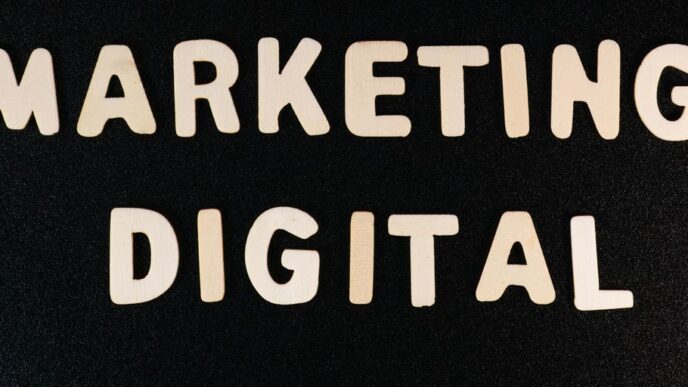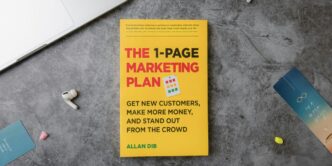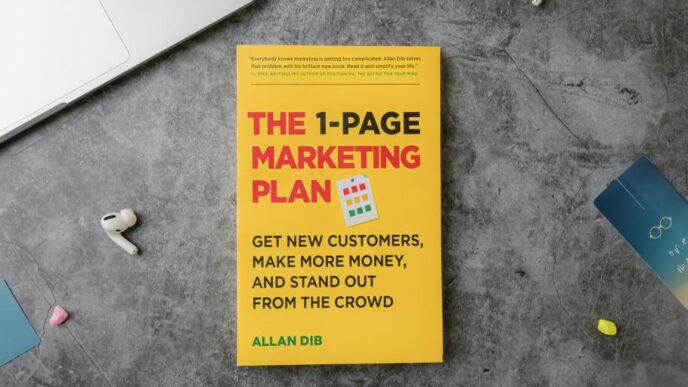Today, Marketing agencies face intense pressure to deliver faster results, boost efficiency, and still maintain that crucial balance of creativity and personalized customer interactions. As customer expectations evolve where real-time responses and personalization have become the norm marketing agencies are increasingly relying on AI and automation to keep up. These technologies are transforming how agencies work, helping them optimize operations, enhance creativity, and deliver data-driven campaigns with pinpoint accuracy.
AI and automation have completely reshaped the way marketing agencies function. From targeting the right customers to automating everyday tasks, AI is driving a huge shift in strategy and execution. Let’s explore how these tools are revolutionizing different types of marketing agencies and why they’re becoming essential to stay competitive in today’s market.
Digital Marketing Agencies: AI for Data-Driven Decisions
Digital marketing agencies focused on online ads, SEO, social media, and content marketing have been early adopters of AI. Why? Because the digital world produces an overwhelming amount of data, and AI helps make sense of it all, turning information into actionable insights.
AI-Powered Analytics
One of AI’s biggest strengths lies in analytics. Using machine learning algorithms, digital marketing agencies can process vast amounts of data from tools like Google Analytics, social media platforms, and customer relationship management (CRM) systems. AI can spot patterns that human analysts might miss, helping agencies improve campaign targeting, understand customer preferences, and even predict future trends.
For instance, AI can analyze customer behavior on a website and predict which products are most likely to be bought and when. This kind of foresight allows agencies to focus on high-value prospects, reducing ad spend on those less likely to convert.
Automation in Digital Campaigns
Automation tools take over the repetitive tasks, like scheduling social media posts, sending email campaigns, and bidding on digital ads. This frees up time for the more creative work, such as developing strategy and designing content. By automating these routine tasks, agencies maintain a strong online presence while ensuring quick responses to customer interactions.
Content Marketing Agencies: AI to Boost Creativity
While creativity is often seen as a human trait, AI is proving its value in content creation and distribution. For content marketing agencies, which produce blogs, videos, infographics, and more, AI is helping speed up the production process without sacrificing quality.
AI-Generated Content
AI tools like GPT-4, which powers advanced writing assistants, can generate high-quality content based on prompts. These tools can write articles, brainstorm ideas, and even help create video scripts or social media captions. While human oversight is still important to ensure content matches the brand’s tone, AI-generated content allows agencies to keep up with demand more efficiently.
Automated Content Distribution
Automation is also a game changer for content distribution. AI tools can suggest the best times to post across various platforms and even predict which posts will drive the most engagement. This helps content marketing agencies fine-tune their distribution strategies, ensuring that their client’s content reaches the right audience at the right time.
Social Media Marketing Agencies: AI for Personalization and Engagement
Social media has become essential for customer interaction, with marketing agencies using AI to manage daily engagements. From automating responses to personalizing content, AI enhances their social strategies.
Chatbots and Virtual Assistants
AI-powered chatbots are essential tools for social media marketing. They can handle customer inquiries in real time, giving instant responses while human agents focus on more complex issues. Some advanced bots, equipped with natural language processing (NLP), can even understand customer emotions, making the interaction feel more personal and tailored.
Social Listening and Sentiment Analysis
AI tools can monitor social media platforms to track mentions of a brand, competitor, or specific keyword. Sentiment analysis algorithms then gauge the emotional tone of these mentions, helping agencies understand how people feel about a brand in real time. This allows for swift adjustments to marketing strategies, ensuring the agency is always in tune with customer feedback and emerging trends.
Advertising Agencies: AI for Smarter Targeting and Efficiency
For traditional advertising agencies, AI is revolutionizing how ads are created, targeted, and optimized. Gone are the days of blanket advertising AI now enables highly targeted campaigns that reach the right audience at the right time, delivering messages that truly resonate.
Programmatic Advertising
Programmatic advertising, one of AI’s biggest impacts in the industry, automates the process of buying ad space. It ensures ads are served to the most relevant audiences at the optimal times. Machine learning algorithms continuously analyze campaign performance and make real-time adjustments to improve efficiency.
Take, for example, a campaign for winter coats. AI can target users in colder regions or those who recently searched for winter apparel, maximizing the return on ad spend and ensuring the ads reach the right people.
Creative Optimization
AI also plays a role in optimizing the creative elements of ads. Through A/B testing, it determines which version of an ad performs best with a particular audience and can make tweaks in real time whether it’s changing the color scheme, adjusting the wording, or modifying the call to action. AI keeps ads evolving for maximum impact.
SEO Agencies: AI for Smarter Optimization
SEO agencies are also benefiting from AI. With SEO, the goal is to get websites ranking higher in search engine results, and AI tools are making this process far more efficient.
AI for Keyword Research
Keyword research, one of the most labor-intensive parts of SEO, involves identifying relevant terms for a website to target. AI tools analyze vast amounts of search data to suggest high-potential keywords and even predict keyword trends, helping agencies stay ahead of the game.
Content Optimization
AI optimizes content by analyzing website performance, recommending improvements in keyword usage, readability, and engagement to boost search rankings.
Conclusion: The Future of AI in Marketing Agencies
AI and automation are already reshaping how marketing agencies work. They enhance data analysis, content creation, personalized customer interactions, and ad campaign optimization. Agencies that adopt these technologies gain a competitive edge as they continue to evolve.











